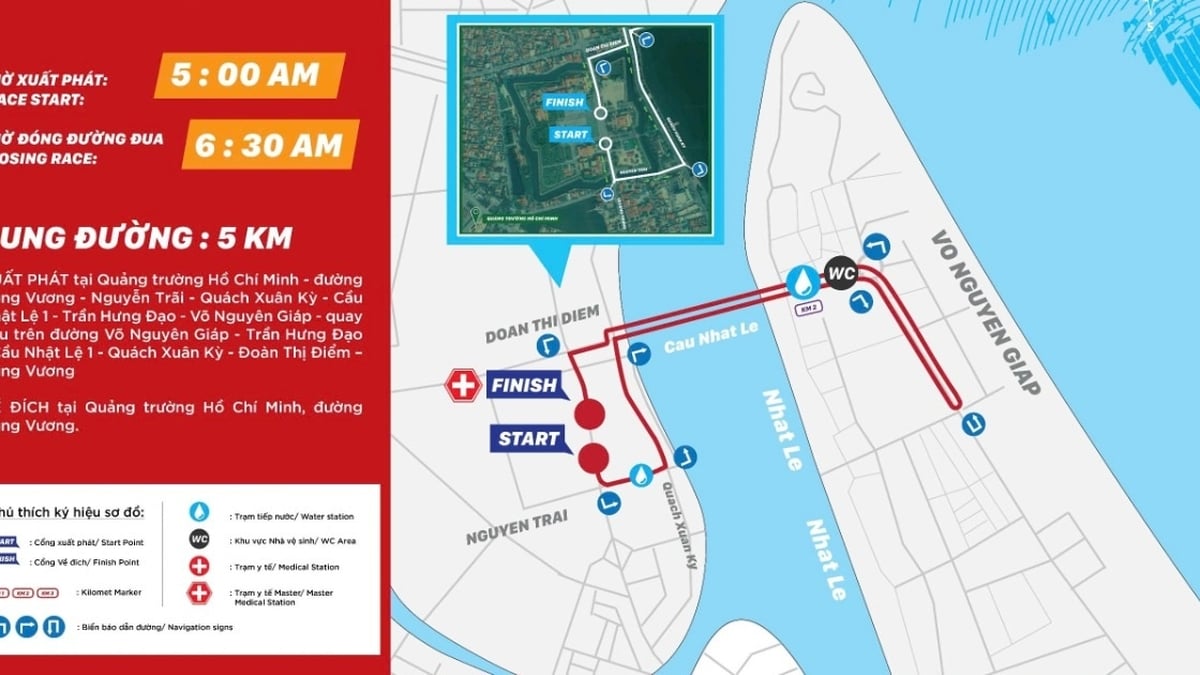Walking is a low-impact and gentle exercise compared to other cardio exercises like jogging or HIIT, but its benefits are anything but ordinary.
"One of the biggest misconceptions about walking is that it's not an effective weight loss tool and requires a lot of time and effort without producing noticeable results. The truth is that walking can help you lose weight and has countless other benefits," says Keri Peterson, PhD.
According to her, research shows that regular walking helps reduce the risk of high blood pressure, high cholesterol, diabetes and heart disease.
Walking has many health benefits (Photo: Istock).
However, to get these benefits, you will have to work harder than usual, walking fast or walking on hilly terrain to change the incline and increase your speed throughout the walk. This will increase the intensity of the exercise and the combination of high and low intensity will help improve cardiovascular health.
You can start reaping the benefits with just 30 minutes a day. Here are 10 scientifically proven health benefits of walking:
May improve mood
Walking for an hour a day can reduce your risk of depression, according to a 2019 study, according to Women's Health. Moving your body in lighter ways throughout the day like walking, stretching, taking the stairs, and washing dishes can still have positive benefits for your mood.
Enhance creativity
According to a 2014 study, walking can actually increase creativity levels. Researchers observed 176 students performing a series of tasks while sitting versus while walking. And they found that walking can boost a person’s creativity by 60%.
Helps burn calories and lose weight
Dr. Peterson explains that walking at a fast pace, using your arms (swinging your arms), will help you burn more muscles in your upper and lower body. “If you can vary the pace with periods of walking uphill or faster to get your heart rate up, you’ll also burn more calories,” she says.
You should aim for 15,000 steps a day, 7 days a week if you want to lose weight.
Promote better heart health
According to a 2018 observational study in the Journal of the American Academy of Cardiology that analyzed more than 90,000 participants, walking at least 40 minutes two or three times a week (at a moderate or fast pace) was associated with a reduced risk of heart failure in postmenopausal women.
Muscle strengthening
Like running, you can build muscle while walking, especially if you haven't been a heavy walker before or if you vary your speed, incline, or resistance (like ankle weights) to increase the intensity. Walking works many of the muscles in your legs. This includes the muscles in your thighs, glutes, calves, and hamstrings.
Reduce your risk of diabetes if you have prediabetes
If you’re at risk for diabetes, take up brisk walking. In a 2016 Duke University study, researchers compared participants with prediabetes who walked briskly or jogged 14 miles a week for six months. The walking participants actually showed nearly six times more improvement in glucose tolerance than the runners.
Helps you sleep better at night
Walking may help you sleep better. In a small observational study published in the journal Sleep Health, scientists found that adults who increased the amount of time they spent walking during the day slept better at night.
Boost immunity
This may come as a surprise, but walking can actually help your immune system function better. A 2011 study published in the British Journal of Sports Medicine found that of the 1,000 participants studied, those who walked at least 20 minutes a day, five days a week, had 43 percent fewer sick days than those who exercised once a week or less.
May increase overall lifespan
One thing to note is that pace matters. According to a 2019 study published in Mayo Clinic Proceedings, people who walk briskly may actually live longer.
Researchers recorded the walking speed and self-reported body mass index (BMI) of more than 400,000 participants and followed them for nearly seven years. There were more than 12,800 deaths during that time, and they used this data to estimate the group's life expectancy.
They were able to determine that fast walkers had longer life expectancies than slow walkers (average life expectancy was 87-88 years compared to 72-85 years).
Research also shows that women who walk fast (over 6.5 km/h) can live 15 years longer than those who walk less than 5 km/h. In men, this figure can be up to 20 years.
Reduces appetite
If you're a late-night snacker, you'll especially benefit from walking. A brisk 15-minute walk, instead of sitting, can reduce your cravings for sugary snacks, according to a 2015 study.
Source: https://dantri.com.vn/suc-khoe/chi-30-phut-di-bo-moi-ngay-mang-lai-hieu-qua-hon-ban-tuong-20250514151003906.htm












![[INFOGRAPHIC] Quantum Flip Agate: The first folding phone with feng shui stone](https://vphoto.vietnam.vn/thumb/1200x675/vietnam/resource/IMAGE/2025/7/28/810874d2267a418ab15b55c7a5e74f6b)











![[Photo] National Assembly Chairman attends the seminar "Building and operating an international financial center and recommendations for Vietnam"](https://vphoto.vietnam.vn/thumb/1200x675/vietnam/resource/IMAGE/2025/7/28/76393436936e457db31ec84433289f72)












































































Comment (0)